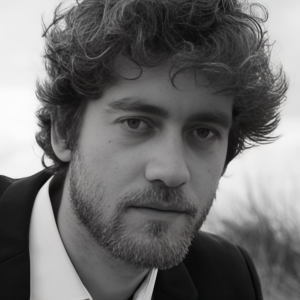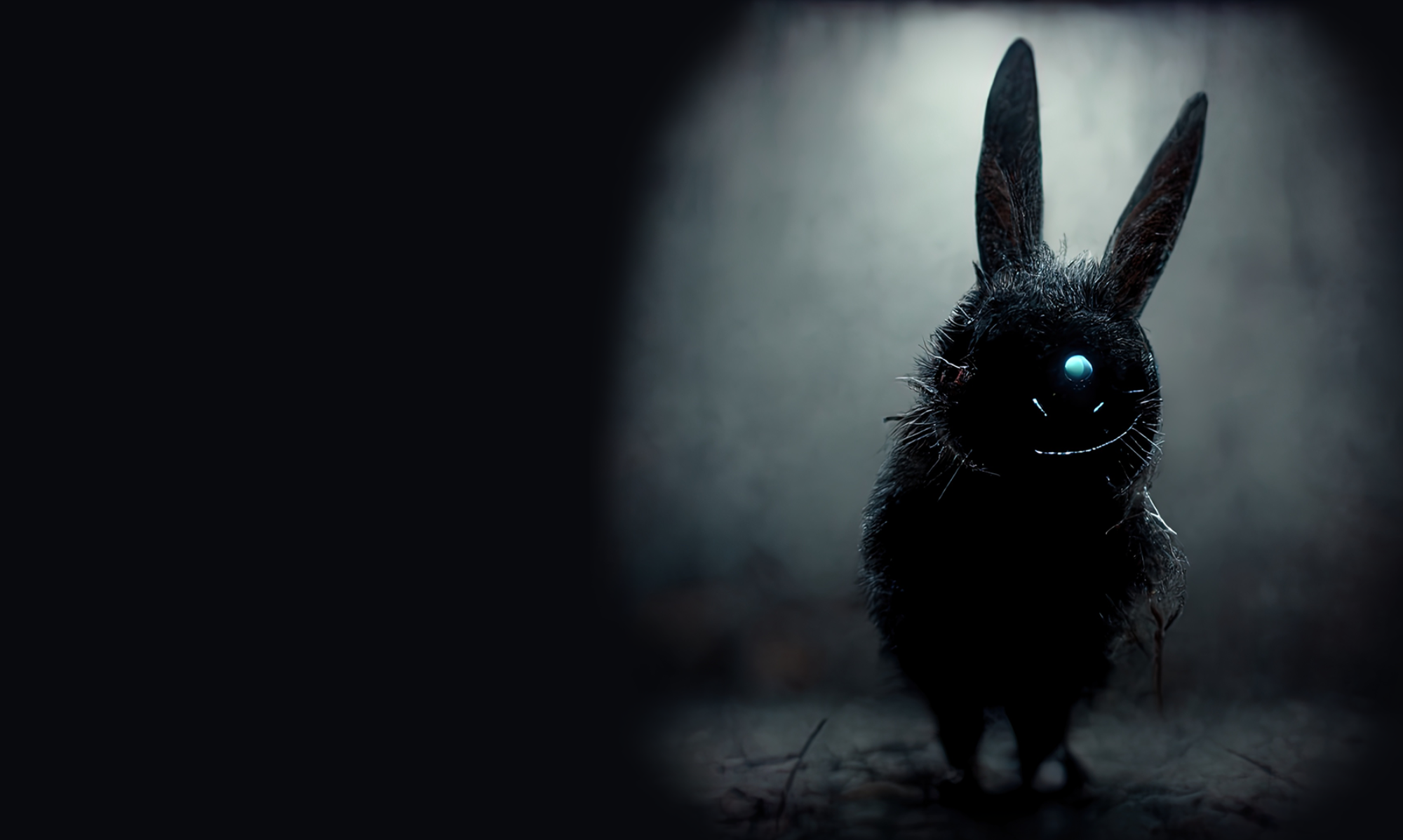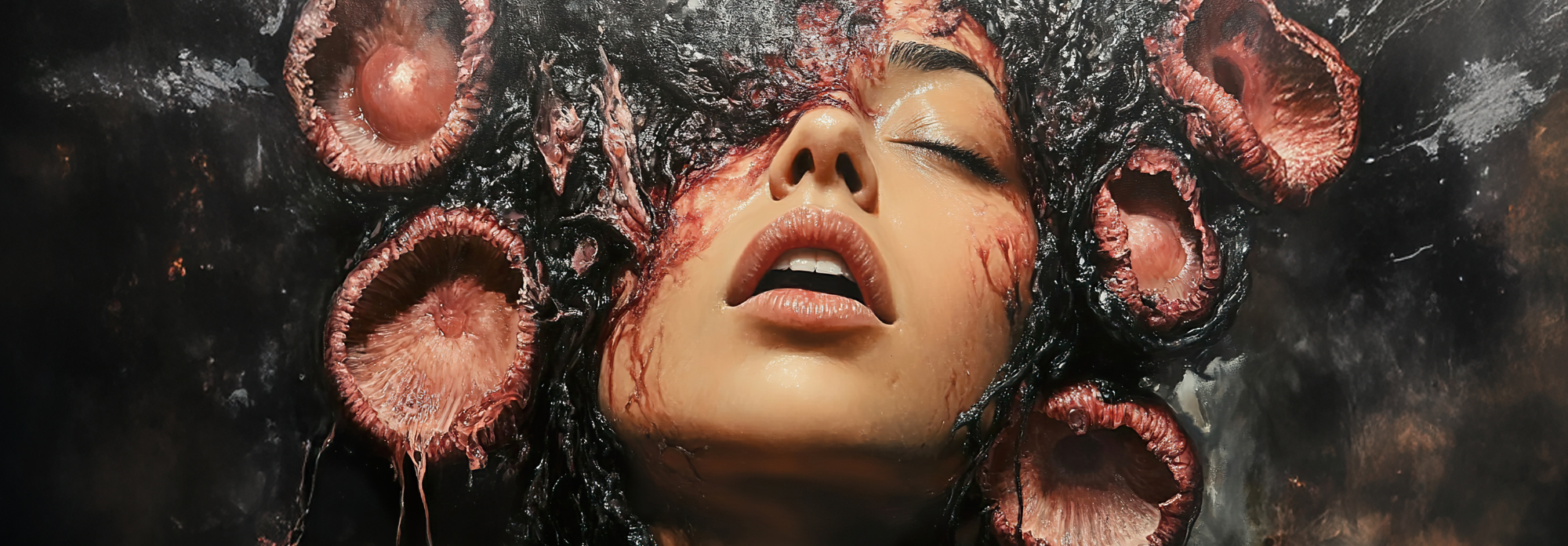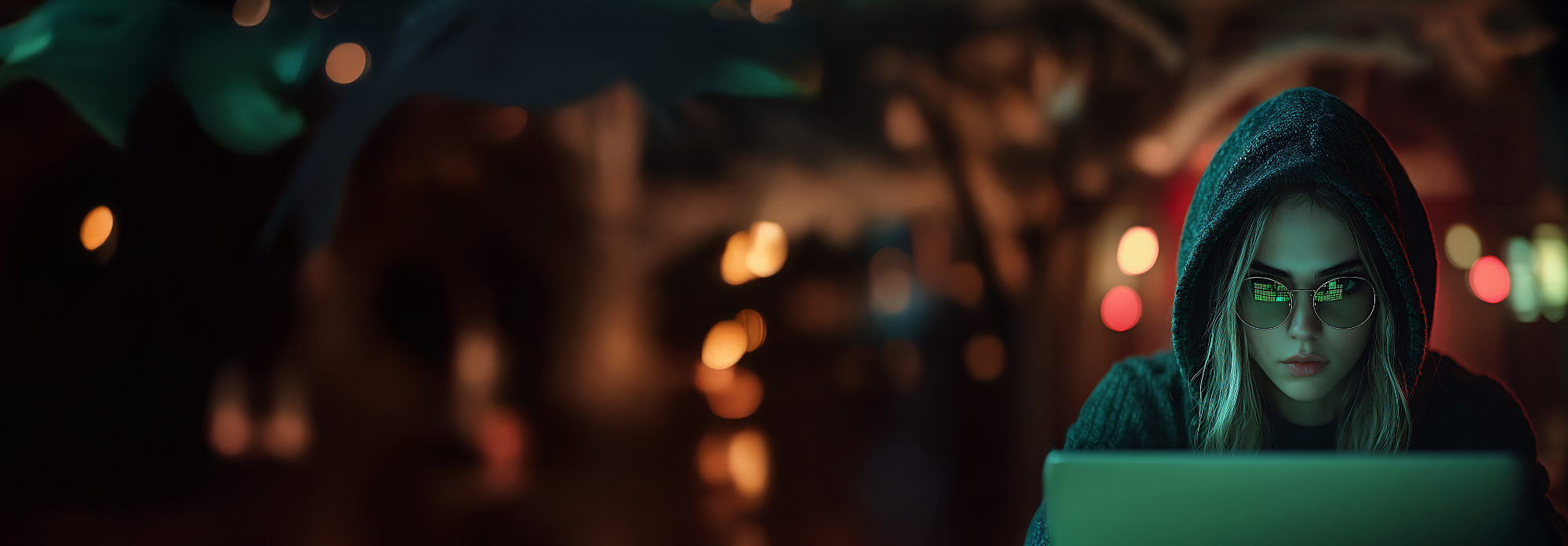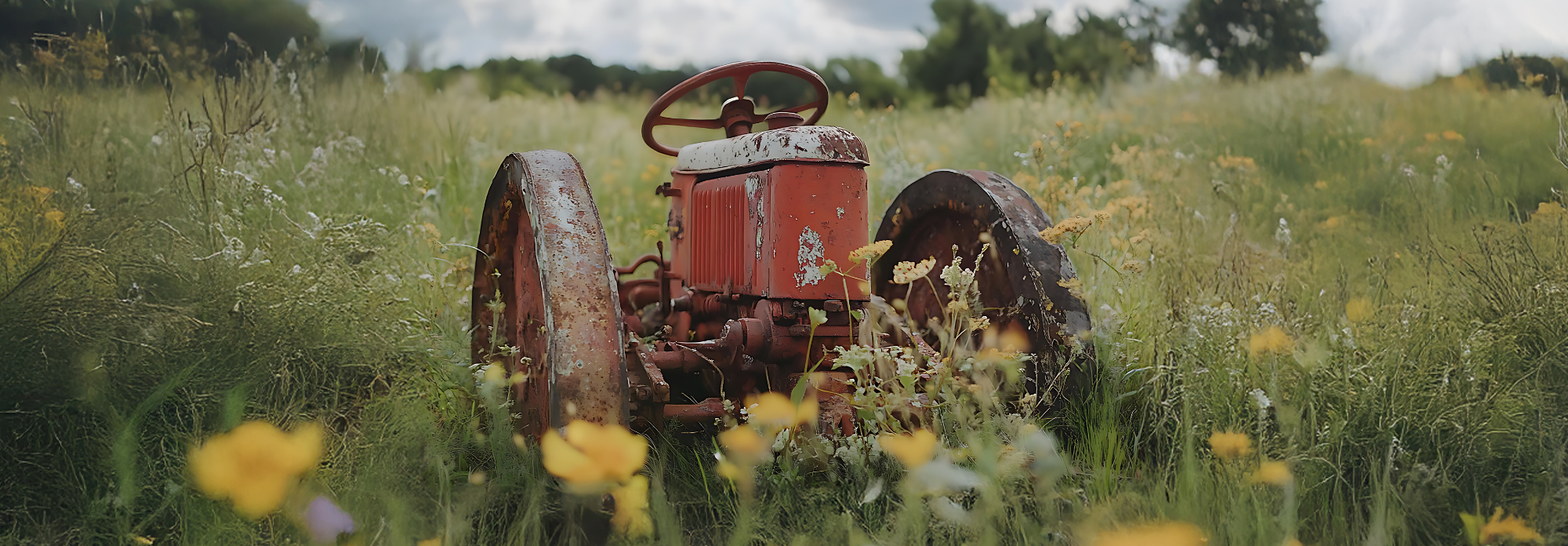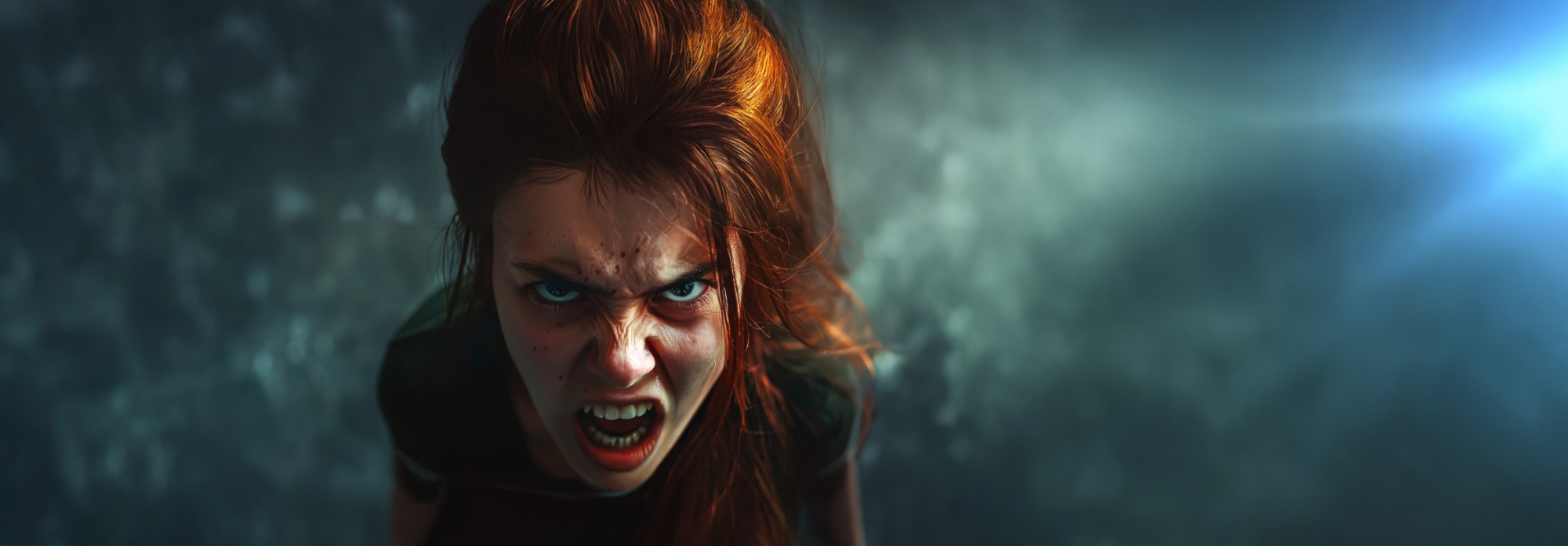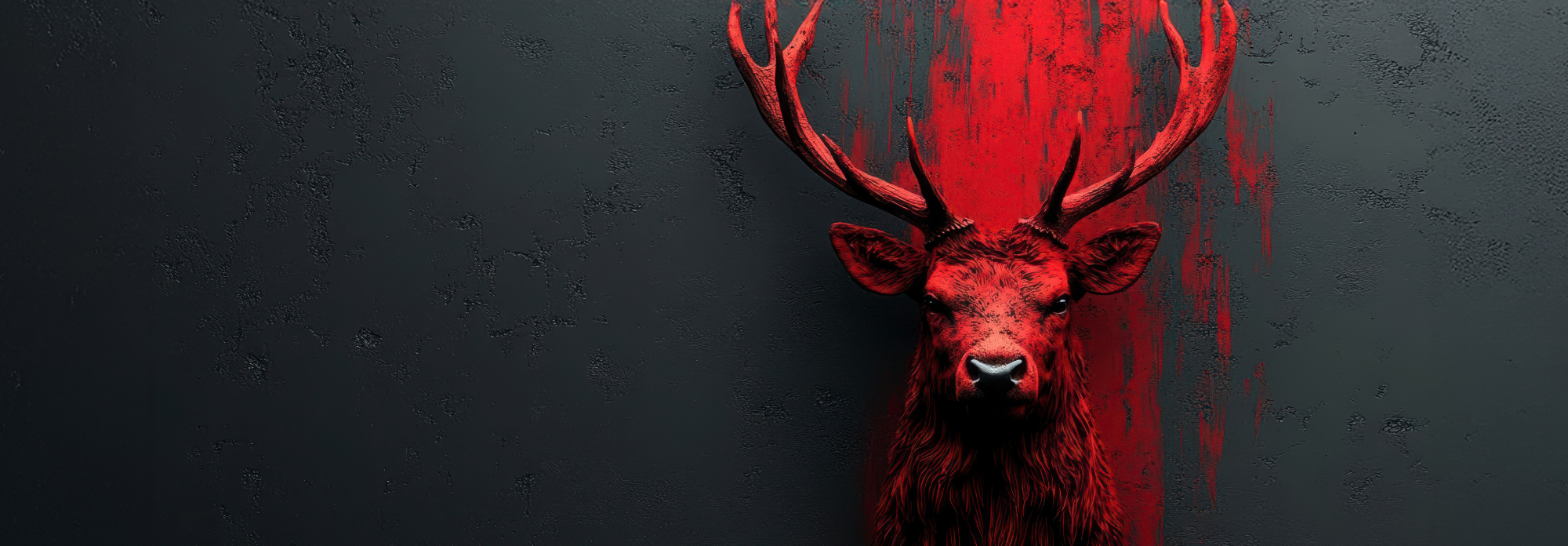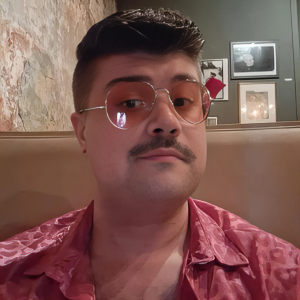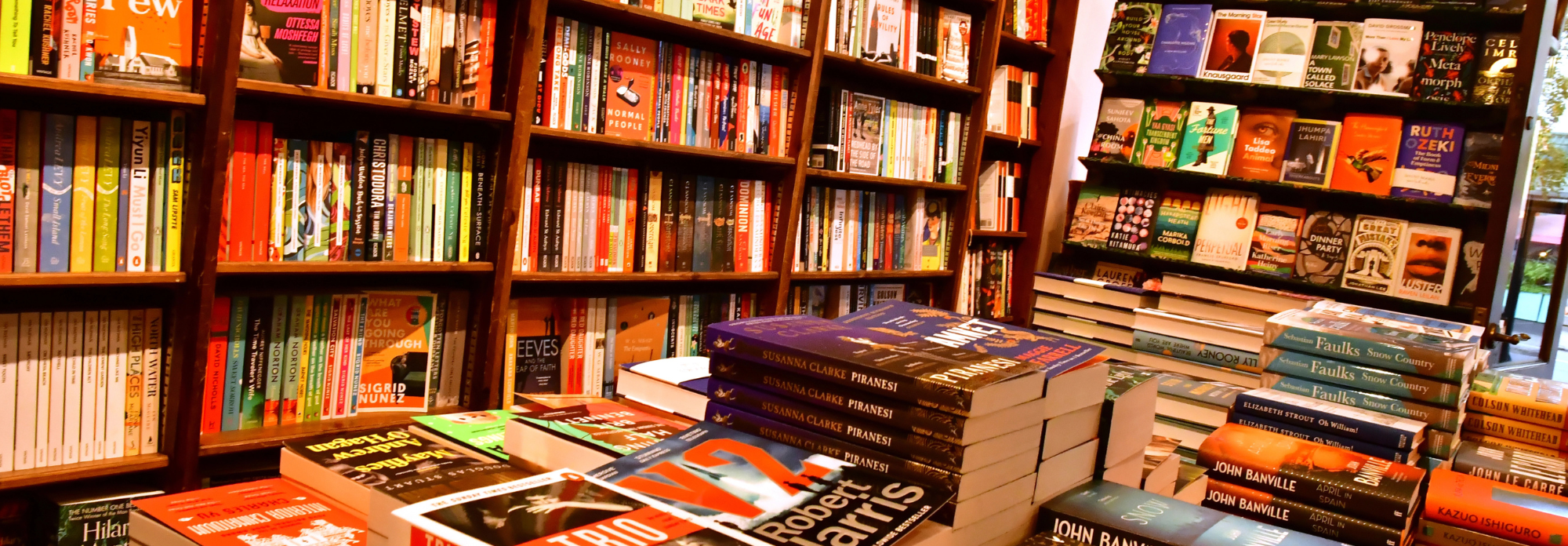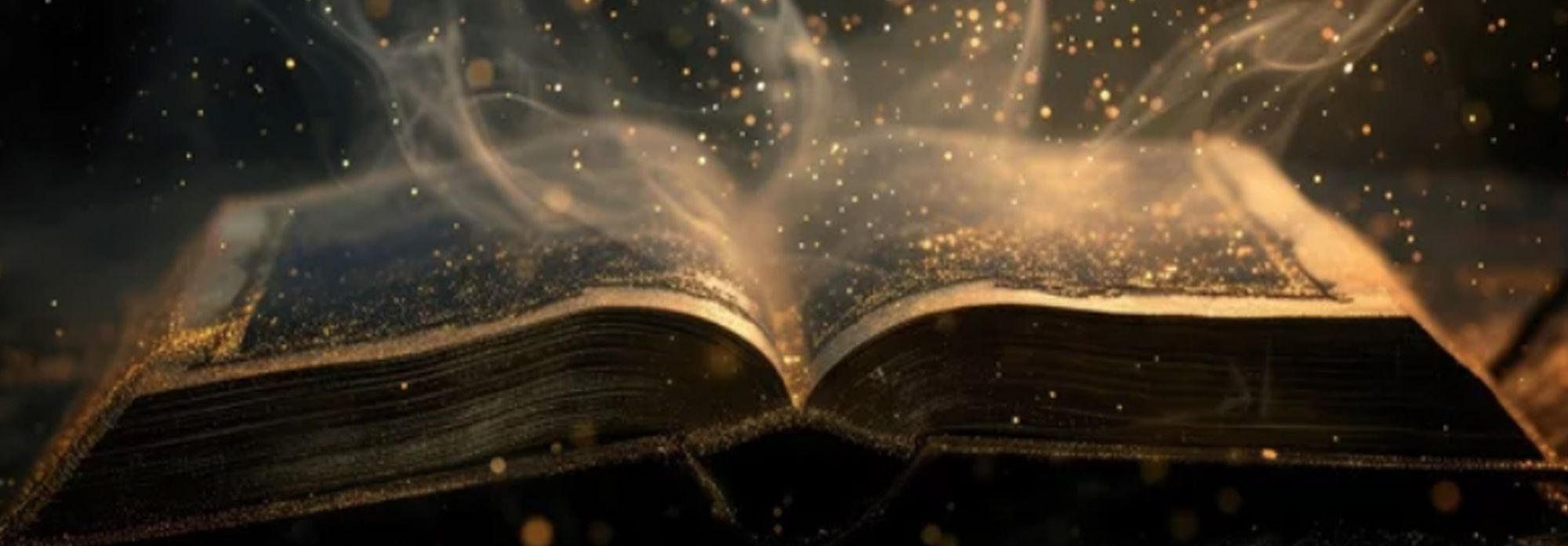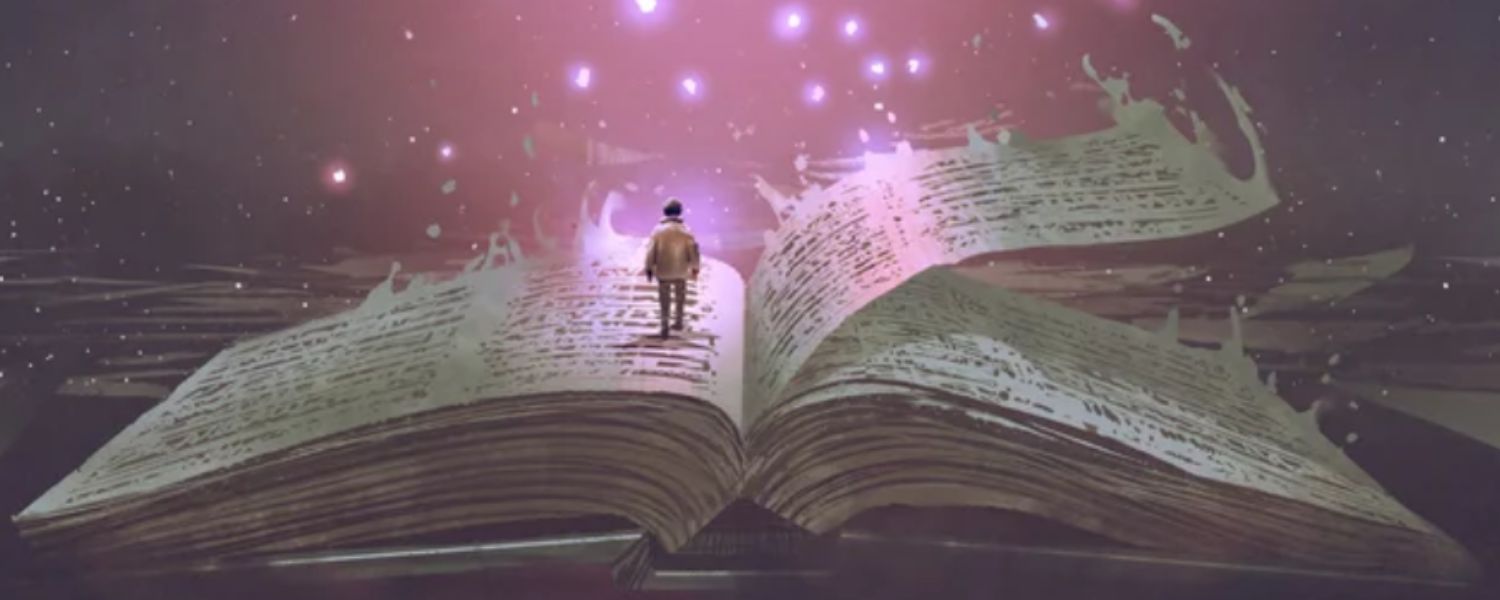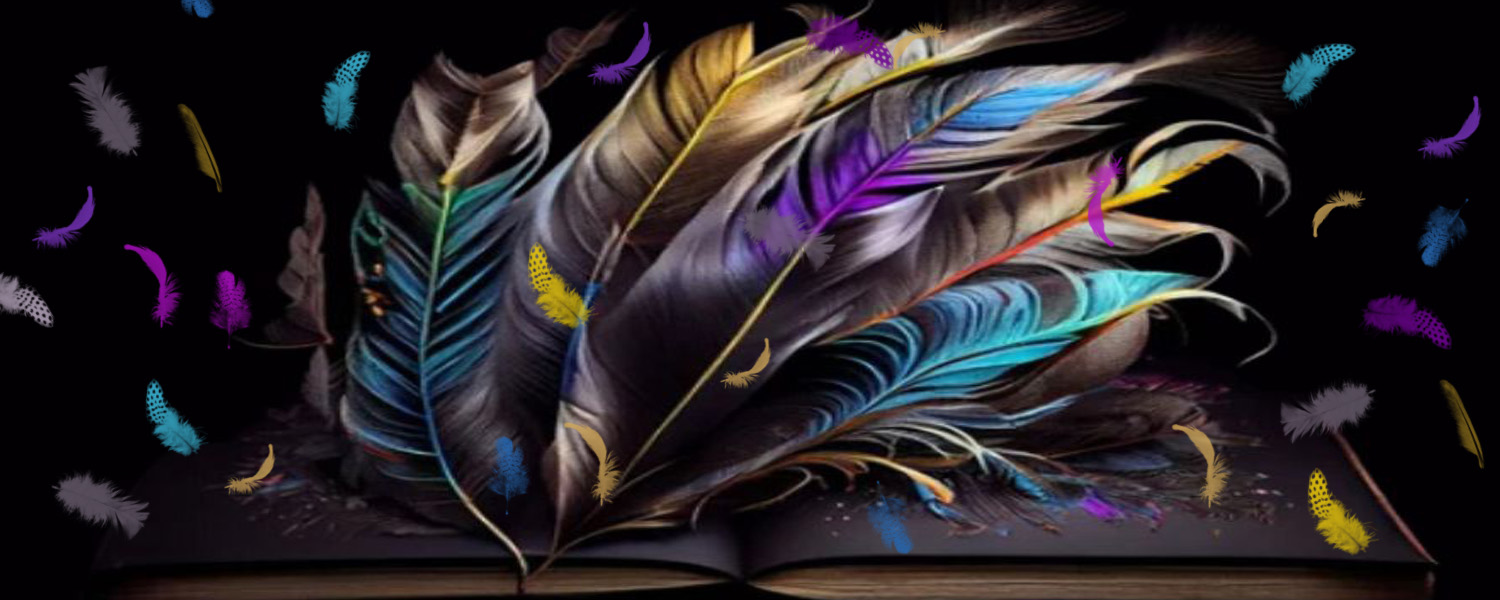Charles stood before a white chapel house surrounded by a dilapidated picket fence in an open field. He tossed his cigarette into the dirt when a car pulled in behind him. He turned to see a Parish Police vehicle, a uniformed man stepping out, introducing himself as Deputy McTeer.
“You lost, sir?” McTeer said, walking closer to Charles. “This is private property.”
“Do I look lost, officer?”
“Not too many people drive blue Volkswagens around here.” McTeer sucked his teeth briefly, lifting his upper lip in a way that brushed his mustache against his nostrils. “Also, I’m not an officer. Only a deputy.”
“I went to church here as a kid.”
McTeer pressed his lips together tightly, placing his hands on his hips. “That so? I don’t recall seeing you around here before.”
“I haven’t lived here in a while. Honestly, I just came back from spreading my dad’s ashes over the gulf.”
“What’s your name, son?”
“Charles Meroux. But you can call me Charlie if you’d like.”
A scowl formed on McTeer’s face as his nostrils widened.
“You’re Raymond Meroux’s boy, ain’t ya?”
“Yes, sir. I guess you know he passed away.”
“Everyone around here knew that day.”
“He left his house to me. And, well, I’m here to figure out what to do with it.”
McTeer chuckled, spitting into the dirt. “Well, ain’t we all lucky.”
“That’s a way to describe it, sure.”
“A man can wonder what you’d be doin’ in that house all alone.”
“Yes, a man can wonder.”
McTeer tipped his hat with a smirk. “Welcome back, Mr. Meroux.”
Charles looked back toward the church as McTeer drove away. He remembered when his dad took him to his first service there as a young boy, not long after his mom left. The services were known for snake handling ceremonies. Charles held a snake for the first time during the service, imagining how hard he needed to squeeze before its scales ruptured into fleshy gelatin between his fingers.
I want to be a good man.
***
Phoenixville, Louisiana, had only one major road leading to town. It was a gravel-paved road, flanked by an endless legion of towering trees, broken only by occasional farms or roadside trailers. A house rested at a curve in the road, beyond two fields of long grass. It sat exactly at the point where the gravel road turns to dirt, with an elevated foundation, raised nearly fourteen feet from the ground. A wraparound porch guarded the perimeter at the top of a set of concrete steps, curtained windows peering out in each corner like spider eyes.
Mr. Lindsay, the property inspector, leaned against his car, waving as Charles pulled in. Charles turned off the car’s engine, lighting a cigarette. He stepped out while facing Mr. Lindsay, exhaling smoke slowly through his lips and nose.
“People around here seem a little anxious about you being back, Mr. Meroux,” Mr. Lindsay said, wiping sweat from his brow. “Seems strange, you look like a nice enough fella.”
“Well, I’ve been gone for about ten years, Mr. Lindsay. People around here hated my dad, and me too, I guess. Probably part of the reason I left in the first place.”
“Yes, I’ve heard a few rumors. Ten years is a long time to be away from home, though. Does it feel good to be back?”
Charles sighed, fixing his glasses as they slid down his nose. “This place isn’t home. I left when I got the chance and haven’t been back until now. Hadn’t spoken to my dad since I left, really. Didn’t hear anything about him until I got a call from the Parish saying he died.”
“Oh, I see. Why did you leave, may I ask?”
“Just wanted to get away and try to live a normal life, I guess.”
“Why’s that?”
“Those rumors about my dad, mainly. Sins of the father and all.”
“Well, rumors or not, your daddy sure liked to read. I can say that for sure. At least, with all them books I saw in there, it sure looked like he enjoyed reading.”
“My dad homeschooled me, so yeah, he kept a lot of books. Very religious, you know? Didn’t trust public schools much.”
“Oh, I see.”
“He was also a storyteller. He loved to tell stories, usually ones about his life. They were all made-up, of course, but he liked to pretend they were true.”
“Well, that sounds very interesting.”
Charles threw his cigarette butt into the dirt, grinding it down with the tip of his shoe.
“You want to hear a story? One my dad used to tell me?”
“I would love to.”
“How about the story of how he got over his fear of the dark?”
“That sounds fine.”
“My dad feared the dark when he was a kid. Every night he would shake himself to sleep, and my grandparents never allowed him to keep a nightlight. One night, he claimed it was so dark and quiet that a monster slipped into his room. He couldn’t see the monster, but he could hear it. It had a screechy voice, almost like a wailing chitter, and he could hear its claws scratching the floor.
“Monsters, you see, don’t like sunlight. They hate it. The one that came to my dad, in particular. They also can’t hurt you if you don’t fall asleep. As long as he stayed awake, the monster couldn’t kill him. This monster was hungry, though. It waited all night until the sun came out. Then its true form was revealed.”
“Which was?” Mr. Lindsay asked, wiping sweat from his eye.
“A rat. A tiny, harmless little rat. In the light, the monster loses its power. In the light, the monster dies. My dad trapped the rat and smashed its head with a hammer. It’s funny how the dark distorts things so much. Is it a great monster we fear in the dark? Or is it nothing at all?”
Mr. Lindsay stood silently. Charles maintained eye contact with him, waiting for the right moment to break it. Mr. Lindsay took a deep breath.
“Well, that was certainly an interesting story, Mr. Meroux.”
“Do you have any kids, Mr. Lindsay?”
“Yes, two boys.”
“Do you love them?”
“More than anything.”
“What kind of men do you think they’d be when they grow up? Every father worries about that at some point, right?”
“I’d love my children, no matter what. That’s the point of being a father, Mr. Meroux.”
Charles leaned against his car, smirking at the corner of his mouth. Mr. Lindsay stood stiff and silent as a gust of wind blew past him. Whistles left Charles’ lips, random tunes without structure or coherence.
“People are just stories, you know. No one really knows anyone else. We can’t see through other’s eyes, think their thoughts, or feel their feelings. We can only do that for ourselves. Everyone else is just a string of images, words, and meanings thrown together to create a living story.”
“That’s a perspective one can have, Mr. Meroux.”
“You want to hear the story about the day I was born?”
“No—thank you. That won’t be necessary.” Mr. Lindsay gestured at his wristwatch while clearing his throat. “I have to get back to the office in Alexandria. It’s a long drive. Call me if you have questions or need anything else from me, Mr. Meroux. For property inspection, that is.”
Mr. Lindsay hurried to his car and drove off without delay. Charles fumbled in his pants pockets, reaching for a set of keys. He held the withered keys in the palm of his hand, away from his face, as if he were anxiously awaiting them to explode like firecrackers. As the wind picked up and droplets fell from gray clouds, Charles stood alone with his head held high and his hand held out.
***
Charles walked through the threshold carrying only a duffle bag and an ice chest, greeted by family photos and crucifixes along the wall. Most rooms in the house had a taxidermy animal, usually a racoon, opossum, or squirrel, with a few alligator and bird skulls. Charles reminisced over them after opening his ice chest, then sipping from a bottle of bourbon, the liquor sweet on his lips until the bottle ran dry.
He stood reading a note he found pinned to the door to the library:
You Are My Only Son
My Only Sun
Charles held the note in his hand for a moment, giggling slightly. He thought about the differences between words, like son and sun. Two words that sound the same and nearly look the same, yet changing one letter creates two completely different meanings. If one piece of a word goes missing, it loses all meaning. It dies. The hours Charles spent reading books alone in the library every day felt like death of a different kind, the one a child feels when they aren’t meant to be seen or heard.
Three large bookshelves stood shoulder-to-shoulder next to the fireplace. Charles ran his finger across the spines of the books stuffed along each shelf, from textbooks to books on the occult. Demonology and Black Magic: Defending Against Satan’s Children was Charles’ personal favorite, admiring the image of Baphomet and his horns on the wrinkled front cover. His admiration went on until his eye glanced at the mounted deer head above the fireplace.
Charles removed the head. He carried it to the basement, staggering down the withered wooden stairs railed against a brick wall. It was the most unique aspect of the house. Not because it was finished or looked pleasant, but because it was the only basement of any kind that existed in Phoenixville. It wasn’t built underground, like most basements. Rather, it was built under the house’s elevated foundation. This was where Charles’ dad, Raymond Meroux, taught him taxidermy when he was young.
An entire workstation was set, various tools and chemicals displayed along a flat metal table. Charles set the deer head on the table after clearing a space.
“Do you think I’m weird?” he said in a slurred voice, holding the deer’s head to his face. “I don’t want to be weird anymore. I want to be like you.” Charles picked up a buzzsaw from the table, pressing the serrated blade against the antlers. “This won’t hurt. I promise.”
***
Nightfall summoned a blaze in the backyard firepit, fueled by lighter fluid and a warm breeze. Charles burned the deer’s head first, its antlers sawed perfectly off. As the fur and stuffing melted in the fire, Charles saw only blackened flesh and bones. He gathered the rest of the stuffed animals from around the house, tossing them each into the flames one by one. The more he burned, the more beer he drank, swearing them to be his last. It was pleasant to watch the carcasses burn. It was time for a new genesis.
Charles removed his clothes slowly and danced around the pit. Spins, twirls, deep back bends, and gentle caresses across his chest drew demons from the empty shadows surrounding the wooden fence and dead bushes. Charles knew these demons, with gnashing teeth and yellow eyes, like harpies who had their wings burned off. The demons danced with Charles, pushing him around the fire over and again. Charles vomited and the dancing stopped while the fire died slowly under stars.
I want to be a good man. I just don’t know how…
***
Charles smoked a joint in the early morning. Soon after, he ventured onto the roadside collecting roadkill just before sunrise. At first, only a couple of nutrias and a squirrel were found, the squirrel missing its lower legs and tail. Near a forest patch, Charles found an opossum with its head completely crushed. He kneeled slowly, loosening the string of the garbage bag in his hand. His hand reached out, yet paused suddenly, Charles’ arm jolting as if the veins were struck by sharp needles.
A toad hopped out from a patch of grass near where the carcass lay. Charles watched it carefully. He waited, his eyes following the creature as it hopped away into a thick bush. The toad reminded Charles of a boy, someone he met when he was a kid. Charles didn’t just remember this, he fixated on it, reliving the memory. The boy was catching toads by the creek, smiling as he and Charles made eye contact for the first time. After the memory faded back to present reality, the cemetery two miles down the road seemed like the best place to go.
The small cemetery sat at a split in the road, nestled between the forest patches. Charles observed the headstones from the tree line. He couldn’t read the names on the headstones, yet was sure this was the cemetery he was familiar with. Patience was needed. Charles waited until after sunset to walk among the headstones, looking for a specific name, with only a flashlight to guide the way. A cold chill crawled up his back as humid air entered his lungs.
I want to be a good man. Teach me how.
“Bierce,” Charles said in a whisper, reading from a small headstone at his feet. He sat with crossed legs, keeping the flashlight steady on the headstone’s name. A thought arose, Charles wondering what would happen if one letter in the name was changed. “Pierce,” he murmured, the name lingering into the still air, repeating softly—“Bierce, Pierce”—until his dry tongue scraped against the rough stone where the name was etched.
Bierce Anthony Myrtle
Beloved Son and Brother
***
Driving drunk during a Saturday sunset seemed better than being drunk alone, at least to Charles. This led to an unplanned stop at a local bar along the roadside. The building, which looked like a rundown shack, had a flashing sign of a beer bottle in one of its windows. Charles walked into a room blasting with country music, cigarette smoke, and loud patrons, who immediately went silent. Charles ordered a shot of bourbon and a bottle of beer without too many words exchanged. After downing the shot, he walked to an empty table in the back corner where he sipped on his beer.
Charles noticed a particular man staring at him from across the room. The man had a beard that Charles admired, yet eyes that he quickly grew to loathe. They were spear-like eyes. Not in the sense that they were shaped like spears, but that they pierced like spears. The man eventually made his way over to Charles’ table, sitting down uninvited.
“Do you know who I am?” he asked calmly, with a grin.
“No, can’t say I do.”
“I know who you are.”
“And who is that?”
“I’ll tell you who I am first. I’m Pierce Myrtle, Bierce’s little brother. You remember me now, Charlie Meroux?”
“That was a long time ago. Besides, I was just a kid back then.”
“Bierce was just a kid, too.”
“I’m not sure what you want me to say, honestly.”
“Just say what you can, Meroux. Say what you can.”
Charles gulped his beer, cocking his head up until his eyes faced the ceiling. “I have nothing to say to any of you people.”
“You shouldn’t fear me. I’d lie sayin’ I’m not angry, but I’m not the one you should be afraid of.”
“Who said I’m afraid?”
“You’re afraid, that’s for sure. Whether it’s me or somethin’ else, that’s yet to be seen.”
Charles sighed, stroking his hair back while tapping his feet on the floor. “Fear is loneliness. My dad used to say, ‘to be a man is to travel the loneliest of roads.’ You can’t possibly know fear until you live this life alone.”
“You want to talk about loneliness?” Pierce replied, stroking his beard. “You know my daddy killed his self over Bierce? Put two barrels of a shotgun in his mouth. My momma, well, she went to sleep one night and never woke up. My whole family is gone, all because of what your daddy did.”
“My dad didn’t do anything.”
Pierce chuckled, tapping his knuckles like drumsticks against the table.
“You and I both know what he did. I know about you too, little Charlie. I know how you lived with your daddy. I pity you. I really do, even if you don’t believe me.”
“None of you had anything you could prove in court. You didn’t even have a body. My dad didn’t kill anybody. He used to go to church every week until everyone shunned him. He even threatened to do an exorcism on me when I was twelve. Said I was possessed by a ‘homosexual demon’ and that’s why my mom left us.”
“That’s an awful thing for a father to tell their son.”
“Trust me. He didn’t have it in him.”
“Why you back here in Phoenixville? What you been up to all these years?”
Charles rolled his eyes while taking a deep breath. “Just trying to live a normal life. Or at least learn how, I guess.”
“You’ll never be normal around here, Meroux. That’s not your fault, but you’ll have to live with that if you stick around here. You don’t belong here.”
Charles guzzled the rest of his beer, setting the empty bottle down forcefully. “You know, you remind me of someone who sucked my dick once in a bathroom stall. Except, he trimmed his beard better than you.”
Pierce grinned, leaning in close to Charles’ face. “We’ll talk again soon. I know where you’ll be.”
Charles struck Pierce’s lips with a kiss, followed by a chuckle. A swift punch to the face knocked Charles to the floor. The bartender soon intervened, telling Charles to leave at the point of a baseball bat. He complied, leaving the bar after picking up his glasses from the floor. Pierce watched him stumble back to his car and drive off into the night.
***
Chain smoking cigarettes didn’t help Charles soothe his anxieties. Feeling watched was only part of it, other fears hid among shadows. These fears, however, had no name or purpose behind them. They were faceless, formless entities that roused fear for the sake of it.
I’m not empty. I’m not whole. It’s just a matter of time now.
A headache gripped Charles in a vise as his hand lifted the buzzsaw toward his forehead. He placed the sawblade against his skin, wondering if his headache would end if he simply cut the pain out. This was interrupted by a sudden banging at the front door.
“Deputy, um, McTavish, right?” Charles said when he answered the door.
“McTeer.”
“Want a beer? Come inside and have a beer with me.”
McTeer stood silently.
“Mr. Meroux, I’m going to be blunt. How long is it you plan on stayin’ in Phoenixville?”
“I don’t know. I told you I came down here to figure out what to do with my dad’s house and that’s what I’m doing.”
“You said that almost three months ago. I haven’t seen any work on the house, nor any for sale signs. These things make a man skeptical of your intentions.”
“I was just going to sell it as is.”
“Listen, here’s the deal, son,” McTeer interjected as he snatched the cigarette hanging in Charles’ mouth. “People around here don’t want you. You make everybody uncomfortable.”
“Uncomfortable?”
“After what your old man did, people around here just want to forget. You hangin’ around brings up bad memories.”
“My dad didn’t do anything.”
McTeer smirked, stepping closer to Charles on the threshold.
“Be that as it may, I’ve gotten some reports lately of a guy with glasses and a ski mask wanderin’ around and pickin’ up roadkill. Got another report about a week ago of a naked man runnin’ around the woods at night with antlers on his head. Also, I don’t think I need to remind you of your run-in with Pierce Myrtle at Marky’s Bar.”
“It was nothing. I’d already forgotten about it.”
“Men like you don’t belong here. This is a quiet, Christian town for men with families. Men with wives and kids. This ain’t no place for degenerates and troublemakers.”
“What’s that supposed to mean?”
“I’m givin’ you a warning. I suggest you do what you gotta do with this house and get it off your hands asap. When that’s done, you’re gonna get your shit, leave here, and never come back. For now, I’m askin’ you not to come into town anymore. You can do your shoppin’ and whatnot in Lullip, the next town over. Do you understand what I’m tellin’ you?”
“Yeah. I gotcha.”
McTeer tipped his hat, spitting on the ground.
As he walked away, Charles slammed the door, punching it viciously until his knuckles turned red. A six-pack seemed good enough to ease the pain in his hands. The first two beers, he chugged quickly. The empty cans were thrown about the house with aimless rage, Charles lunging one can after another in any direction he deemed worthy. No amount of alcohol, cigarettes, or even a joint could calm the tides churning within him.
In the bathroom, Charles stared at himself blankly in a mirror as tears ran down his face. No comfort came from flexing his arm muscles, beating his chest, or slapping himself with both hands. Deer antlers slowly morphed to his head, tied in place by a leather strap. A sealed bottle of bourbon rested in his hands. Charles didn’t attempt to open the bottle, only gazing at it for several minutes until looking back at himself in the mirror. He smiled as he turned off the light.
I want to be a good man. It’s only a matter of time…
***
Charles waited until midafternoon. He wore a green coat, holding a garbage bag. His eyes darted around after leaving the house, glimpsing in every direction, watching patiently as he trekked into the nearby tree line. The humidity didn’t bother Charles much, even as sweat trickled down his nose. He walked like a lost ghost, no direction, no purpose, yet all memory. His wandering into memory was suddenly halted by the tinge of cold steel pressed against the back of his neck.
“Turn around,” said a familiar voice.
Charles turned slowly, raising his hands.
Pierce Myrtle stood before him, firmly gripping a pistol. “I knew I’d find you out here.” Pierce stepped forward, searching through Charles’ coat and pants, only to find a quarter empty bottle of bourbon. “You mind?” he said, gesturing to the bottle of bourbon, taking a big gulp soon after. “You still look afraid.”
“I’m not afraid.”
“Whether you believe me or not, this isn’t what I want. But this is how it must be.”
“Does it make you feel strong?”
“There’s no joy in this for me, Meroux. I’m not a killer. I understand, believe me. You loved your daddy. I loved my brother. Love does terrible things to a man. It breaks easy, like thin glass. That’s why I’m doin’ this. Not out of hate, but love.”
“You want to know where he is?”
Pierce took another gulp of bourbon, pressing his pistol against Charles’ forehead. “Say that again?”
“Bierce. I can take you to him. That’s what you want, right? That’s what you’ve always wanted. You want to settle this? I can show you the way.”
Sunset approached as Charles led Pierce deep into the forest. They journeyed into the thick until reaching a creek. The small creek ran through a series of fallen trees, its banks made up of pebbles and rocks. Charles stood near a group of rocks, turning slowly to face Pierce. He said nothing to him, only glaring directly into the barrel of the pistol.
“Where is he, Meroux?” Pierce asked, his eyes tearing up. “Where’s my brother’s body?”
“Body?” Charles tilted his head.
Pierce took a gulp of bourbon, stumbling forward. “Show me where Bierce is. Be a man and do what’s right. That’s the least you can do.”
“Bierce is here. His body was destroyed, but he remains in spirit. His spirit lives here now. He will always live here until the end of time.”
“I’m done bein’ nice about this, Meroux.”
“This is where it happened. Right there, by the creek. This is where Bierce was taken into the void. I can still feel him here with me. Tell me, what do you feel now?”
“Stop…wh-wha…”
The pistol fell from Pierce’s hand as he dropped to his knees. His vision blurred and hearing shifted to muffled murmurs.
“There was a banana spider that made its web not too far from here,” Charles said as he crept closer. “I used to catch grasshoppers and palmetto bugs in the long grass and snap their legs off. I’d take them to the spider and feed them to it. It was amazing to see how the spider slid down its web, scooping up these bugs, watching them struggle to use limbs they no longer had.”
Pierce fell onto his back.
Charles spoke continuously as Pierce slowly became lost in darkness. “Bierce. Pierce,” he whispered quietly.
***
“Oh, good,” Charles said as Pierce stirred. “I hoped you weren’t going to die.”
Pierce pieced together images of a concrete floor, thick walls, and metal table arranged with several animal carcasses and tools.
Soon he faced a form that spoke in Charles’ voice with antlers resting atop his head. Pierce wailed in a weak mumble, his heavy head wobbling unstably. As he tried moving, he felt the tight grip of rope tying him to a chair.
“Sumbitch,” Pierce said, attempting to form a coherent sentence. “Sumbitch…”
“How’d you like the whisky? I saved it ’specially for you. A nice little spike. It should keep you docile for a while.”
“Sumbitch…sumbitch…”
Charles’ fingers latched onto Pierce’s face, squeezing his cheeks tightly. After a deep breath, he looked down into Pierce’s eyes. “I wish I had your eyes. You have the same eyes Bierce had.”
Pierce spat in Charles’ face, getting only a laugh in response.
“It wasn’t supposed to happen the way it did. I didn’t even know about Bierce until I saw him that day. I don’t regret anything, though.”
“Wha…you…” Pierce mumbled as his eyes grew wide.
“All I ever wanted was to be normal. Normal for my dad, normal for this town, this person or that person. I thought if I just played a role, I could pretend to be someone else. Not me, but someone who looked like me. I wasn’t me, only a story of me.”
“Sumbitch…sumbitch…”
“I was alone most of the time when my dad wasn’t home. He never wanted me to leave the house. I spent hours, sometimes days, alone in that house. I snuck out when I could, though. So, one day, when dad’s gone, I ran away. I didn’t really know where I was going. I didn’t care, either.”
“You…you?”
“Bierce was by the creek catching toads. I don’t know why, but I just got this feeling of always wanting to be around him. For hours we caught toads up and down the creek until the sun started going down. Bierce said he needed to go home. I didn’t want him to leave, though. I just thought if I was with him, I wouldn’t need to go back to my dad. I thought if I hit him hard enough, if he bled long enough, then I could keep him like my dad’s stuffed roadkill.
“I picked up a sharp rock. Then, well—I lay with him. All night it was just me and him out here, just how I wanted it. For the first time, I didn’t feel alone anymore. My dad found us before sunrise the next day. I remember the way he looked at me, like he was frozen in time. Maybe he was, if only for a moment.”
Pierce looked up. His heart raced, unable to express any rage. “You…you…”
“My dad did everything he could to protect me, even risking the death penalty. He was willing to take all the blame. All this for a son who never loved him. Funny, right?” A wide grin grew across Charles’ face, baring his teeth like a cornered animal as he released Pierce from his grip. “My dad didn’t kill Bierce. I did.”
“Gawd… G-Gawd!” Pierce flailed his head around wailing, trying to call out for help.
This made Charles laugh, chuckling like a woodchipper. “Bierce. Pierce,” he said, pointing at Pierce. “Just like that, a name becomes completely different. People are like words, you know. If you take out letters of a word, remove their pieces, what are they? Are they still whole? Do they have meaning?” Charles pressed his finger against Pierce’s forehead. “If I took pieces from you, would you still be the same? Would you still be a man? Or would you be something else entirely? We can find out together.”
Pierce spat and cursed with a mumbled slurring. “I…kill ye…I…kill ye!”
“I do have one regret. My only regret is that I couldn’t keep Bierce. My dad made sure of that. Burned his body up in the backyard fire pit until he was nothing but ash. I’m going to keep you, though. I’ll keep you here with me forever, and you’ll always be with me in spirit. I wanted to be a good man. But now, I just want you.”
Charles turned, picking up the buzzsaw from the table behind him. He pressed the trigger switch off and on, admiring the whirring spin of the serrated blade. “This will take a while, though,” he continued, glancing into Pierce’s eyes. “I think I’ll tell a story, to pass the time. You want to hear the story about the day I was born? That’s my favorite story of them all.” Charles smiled. “Let’s start from the beginning.”
